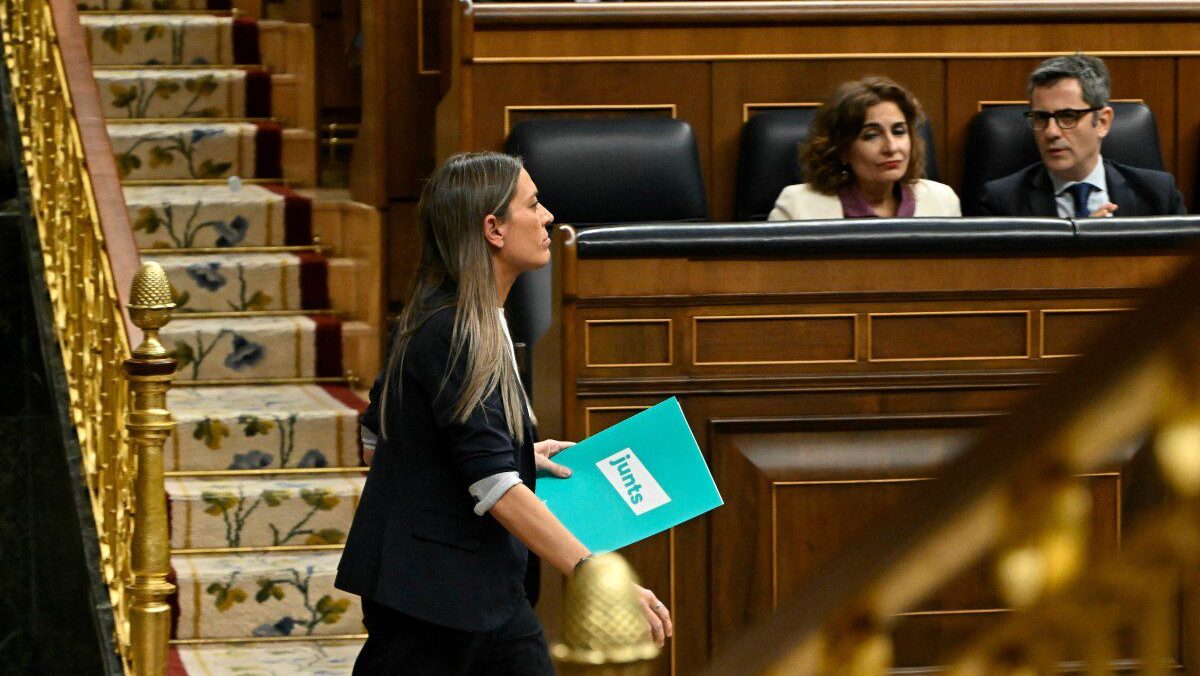
Photo: JAVIER SORIANO / AFP
In the end, Catalan separatists struck down their own amnesty.
On Tuesday, the controversial—and likely unconstitutional—bill proposing legal immunity for a wide swath of crimes committed by Catalan separatists, spanning decades and two attempts to unilaterally declare the region’s independence from Spain, faced a vote in the country’s lower chamber of parliament. However, the very party that had insisted on its creation voted against it.
The bill was a crucial concession to the hard-core Catalan separatist party Junts per Cat by Prime Minister Pedro Sánchez and his socialist party. Sánchez needed their support to form another coalition government and stay in power.
However, even as the bill was making its way through the legislative process, additional charges against separatists complicated the matter. First came charges of terrorism against separatist civic groups, who were accused of trying to destabilize Spanish society through widespread protests. These demonstrations even temporarily interrupted operations at Barcelona’s international airport.
Then, just days before the bill went up for a final vote, came charges of treason for separatists who held meetings with high-level Russian officials in Moscow, seeking to garner both support and money for Catalan independence.
Most importantly, both sets of charges directly implicated MEP Carles Puigdemont, the leader of Junts per Cat, who fled to Belgium after leading the 2017 referendum and has remained there since. His return to Spain free of judicial prosecution and penalties is at the heart of the amnesty deal, but charges of terrorism and treason are politically and legally difficult to pardon, meaning the law and the amnesty could easily be torn down by a Spanish court or the European Court of Human Rights.
The Catalans had urged amendments to the bill so that it would cover crimes of treason and terrorism, but in the end, not even the socialists and the other left-wing parties could back this. But Junts per Cat remained insistent and, as threatened, voted against the bill.
The bill now returns to committee where lawmakers have a month to rewrite the text before sending it back to parliament for another vote.
During this time, there will undoubtedly be machinations by socialists and Catalan separatists, as well as more demonstrations against the possible amnesty. Another such protest in Madrid last Sunday once again gathered tens of thousands of Spaniards against the judicial free pass.
If Sánchez cannot manage to finesse the amnesty bill into something acceptable to the separatists, he will be facing a complete paralysis in parliament. Without the blessing of Junts per Cat, which is, for the moment, completely dependent on the amnesty question, he won’t be able to pass a single piece of legislation or even a new budget. According to Spanish media, Sánchez already considers passing a budget a lost cause and is preparing to simply allow last year’s budget to be extended, which Spanish law permits.
